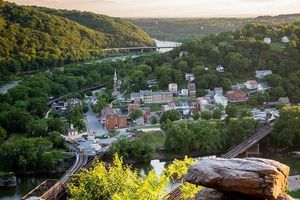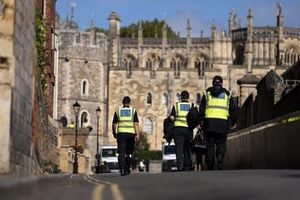Venezuelan President Nicolás Maduro has once again set the stage for an early Christmas, announcing on September 8, 2025, that festivities in Venezuela will officially begin on October 1. This move, which echoes previous years, comes at a moment of heightened political and military tension between Venezuela and the United States, underscoring Maduro’s penchant for intertwining national celebration with times of crisis.
“We are going to apply the formula of other years, which has worked well for the economy, for culture, for joy, for happiness,” Maduro declared in his Monday address, as reported by BNO News. “And we are going to decree that from October 1 Christmas begins in Venezuela once again. This year too. This year Christmas begins on October 1.”
The decision is not entirely new. Since 2013, Maduro has advanced the start of Christmas several times, often during periods of political or economic turmoil. In 2024, he declared the early festivities as a tribute to Venezuelans who endured a nationwide blackout—an event his government attributed to sabotage. This year’s announcement, however, lands against a particularly fraught backdrop, just a week after a dramatic escalation in U.S.-Venezuelan relations.
On September 1, U.S. President Donald Trump confirmed a U.S. military strike that killed 11 members of Tren de Aragua, a Venezuelan criminal organization designated by Washington as a foreign terrorist group. According to BNO News, the strike prompted a swift reaction from Caracas: Venezuela deployed F-16 fighter jets near a U.S. Navy destroyer in international waters, signaling a readiness to defend its sovereignty.
President Trump, never one to mince words, issued a stern warning in response. He stated that any Venezuelan aircraft flying over American ships and "putting us in a dangerous position" would be shot down. The message was clear—any perceived threat to U.S. military assets would be met with force.
Amid these rising tensions, U.S. Defense Secretary Pete Hegseth made a high-profile visit to Puerto Rico on September 8. His mission: to assess the island’s potential as a strategic hub for expanded U.S. military operations against drug cartels in the region. This move further underscored Washington's resolve to clamp down on transnational crime networks, many of which, according to U.S. officials, have deep ties to the Venezuelan government.
The U.S. Justice Department has long accused Maduro of leading the so-called Cartel of the Suns, a sprawling drug-trafficking network composed of senior Venezuelan officials. Furthermore, Washington alleges that Maduro supports and enables operations by groups like Tren de Aragua. These accusations have not only fueled diplomatic hostilities but have also resulted in a steadily increasing bounty on Maduro’s head. The U.S. State Department now offers up to $50 million for information leading to his arrest—the highest sum ever posted in the history of the Narcotics Rewards Program.
Against this volatile backdrop, Maduro’s decision to usher in Christmas early might seem, at first glance, like a mere attempt to boost morale or distract from hardship. But as history has shown, such gestures in Venezuela are often deeply political. The early festivities serve as both a balm and a rallying cry, encouraging unity and resilience in the face of adversity. And this year, the government’s efforts to shore up national solidarity have taken a decidedly modern twist.
According to The Washington Post, Maduro’s administration is now harnessing artificial intelligence to resurrect Venezuela’s pantheon of heroes. In a series of AI-generated videos, iconic figures like Simón Bolívar—the Liberator who, nearly two centuries ago, freed much of South America from Spanish colonial rule—are digitally brought to life, exhorting contemporary Venezuelans to defend their nation against foreign threats. Bolívar, whose legacy has long been a touchstone for Venezuelan nationalism, is depicted urging citizens to take up arms in the face of a potential U.S. invasion.
But Bolívar isn’t the only historical figure making a virtual comeback. The campaign also features José Gregorio Hernández, a beloved 20th-century physician who is set to be canonized as a saint by the Catholic Church in 2025. Hernández’s inclusion in the AI-driven campaign is particularly striking. Known for his devotion to healing and compassion, he is portrayed as a spiritual guide, encouraging Venezuelans to stand together during these turbulent times.
The use of AI to animate national heroes is part of a broader government push to galvanize the population. The Venezuelan government is actively encouraging citizens to join militias, framing the current standoff with the United States as a defining moment for the nation’s sovereignty. By invoking the words and images of revered figures, Maduro’s administration aims to evoke a sense of historical continuity and collective purpose.
For many Venezuelans, these efforts are both familiar and jarring. The invocation of Bolívar and Hernández taps into deep wells of national pride and religious faith, but the use of AI technology adds an uncanny, modern edge to the campaign. As The Washington Post notes, it’s easy to imagine Bolívar rallying his compatriots to resist foreign domination—but seeing him do so via digital animation is a reminder of how political messaging is evolving in the 21st century.
Meanwhile, the specter of foreign intervention looms large. Maduro’s warnings of a U.S. invasion, coupled with the government’s calls for militia enrollment, reflect a climate of anxiety and defiance. The military posturing on both sides—Venezuela’s F-16s shadowing U.S. naval vessels, Trump’s threat to shoot down hostile aircraft—has only heightened the sense of crisis.
Yet, amid the saber-rattling and digital resurrection of heroes, ordinary Venezuelans are left to navigate the realities of daily life under sanctions, economic hardship, and political uncertainty. The early arrival of Christmas, with its promise of joy and togetherness, offers a brief respite from the tensions that have become all too familiar. But as the lights go up and carols begin to play, the underlying challenges facing the country remain unresolved.
In the end, the intertwining of holiday cheer, historical memory, and geopolitical brinkmanship paints a complex portrait of Venezuela in 2025. The government’s strategies—whether they involve festive decrees or cutting-edge technology—are designed to foster unity and resilience. But the stakes, both at home and abroad, have rarely been higher.
As the first Christmas decorations appear in Caracas this October, they will do so against a backdrop of uncertainty and determination, a testament to a nation striving to define its own destiny amid the pressures of history and the realities of the present.



